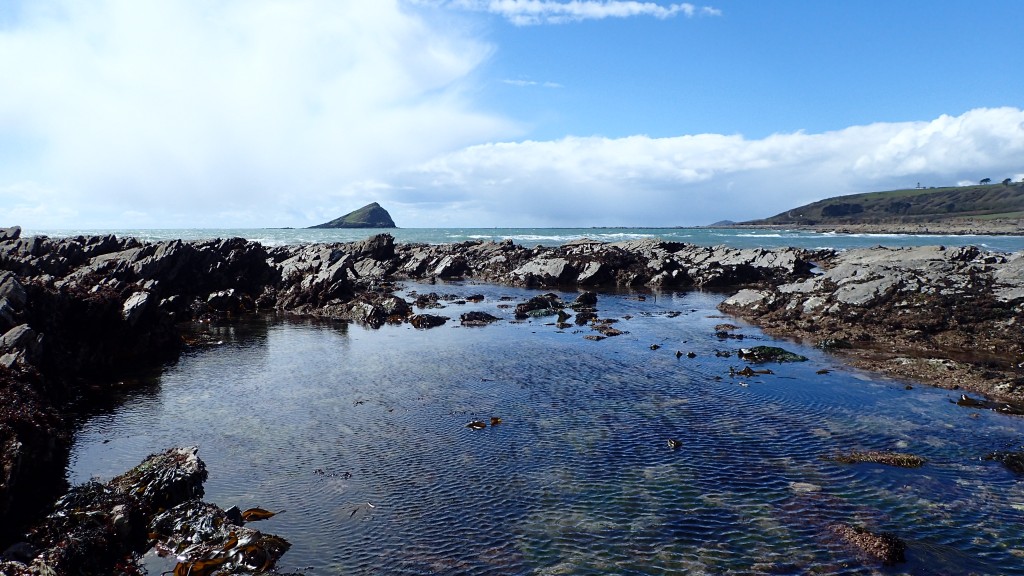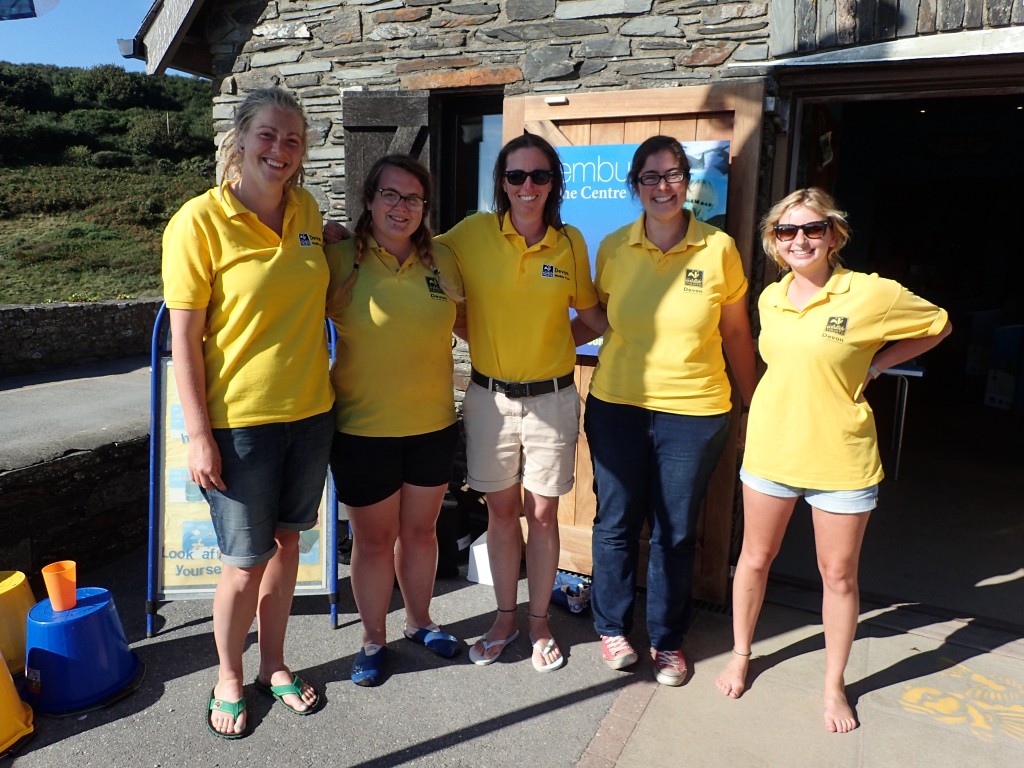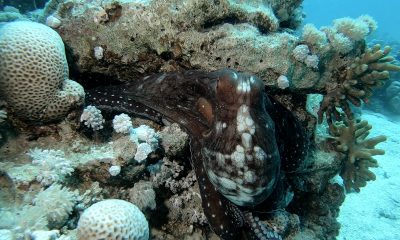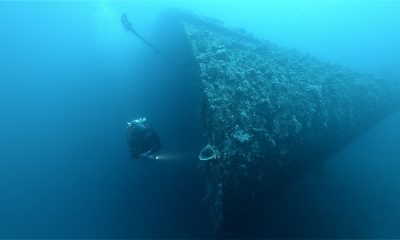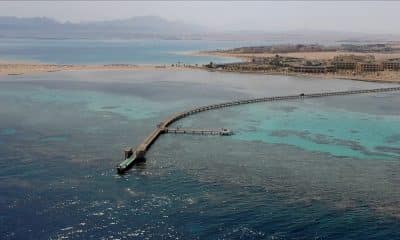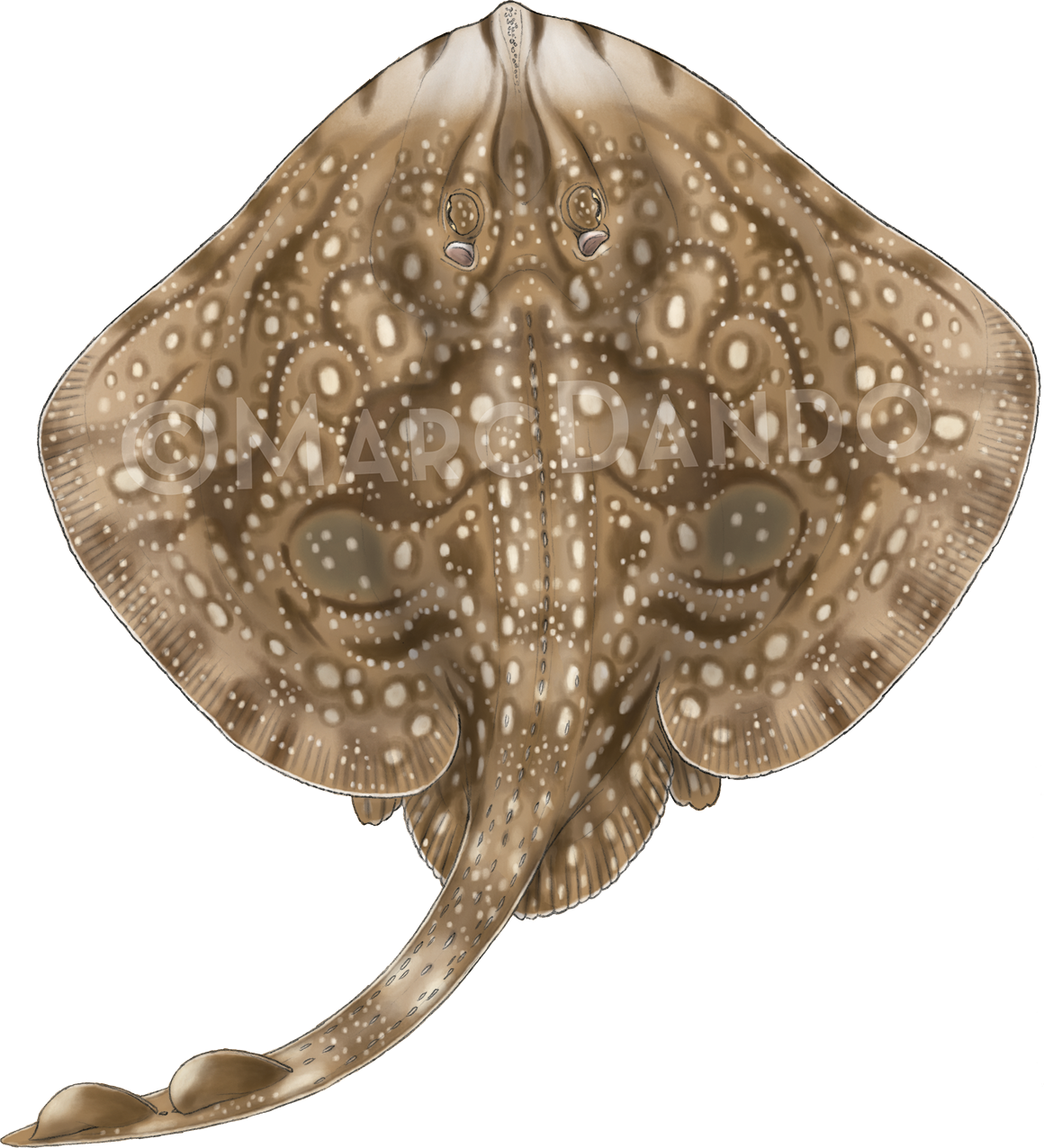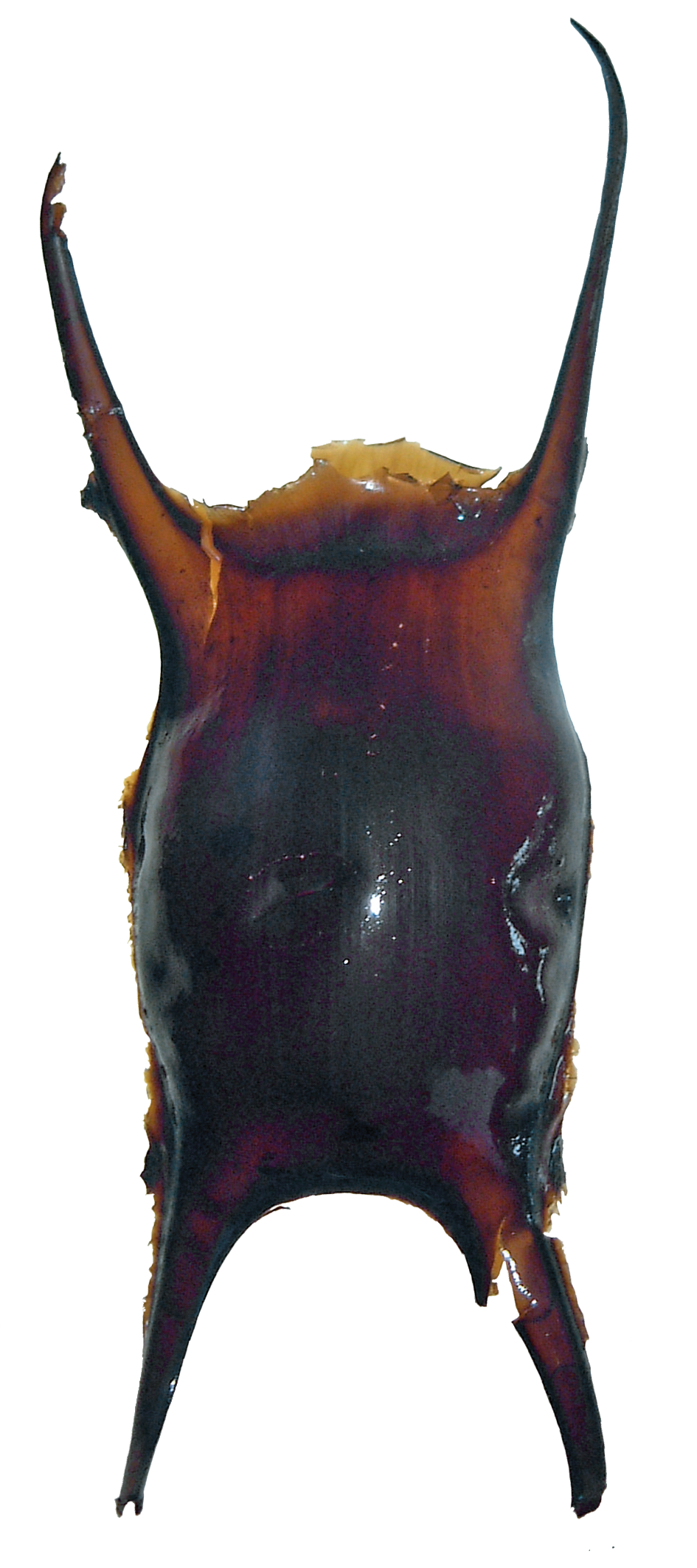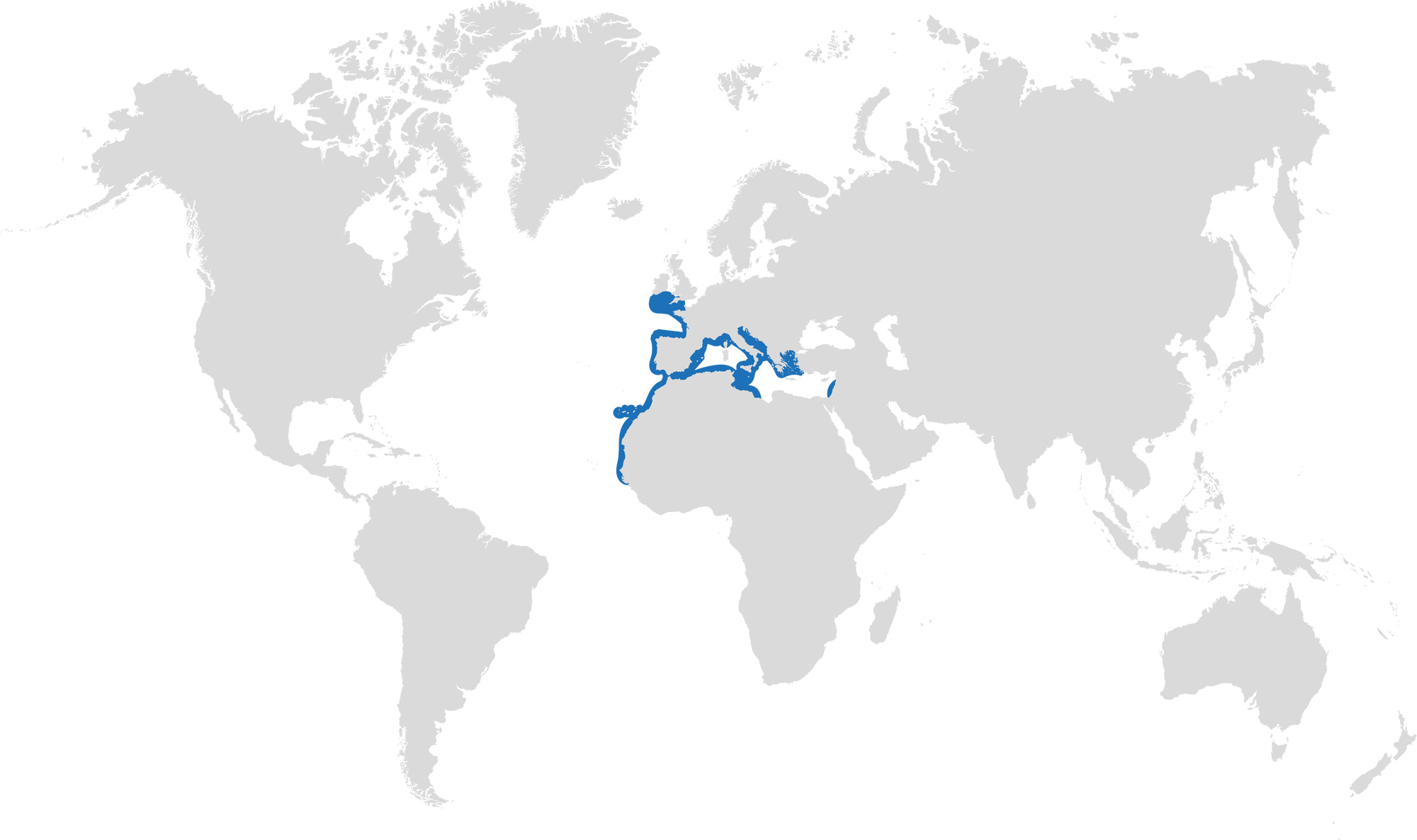Marine Life & Conservation Blogs
Hello from Wembury!
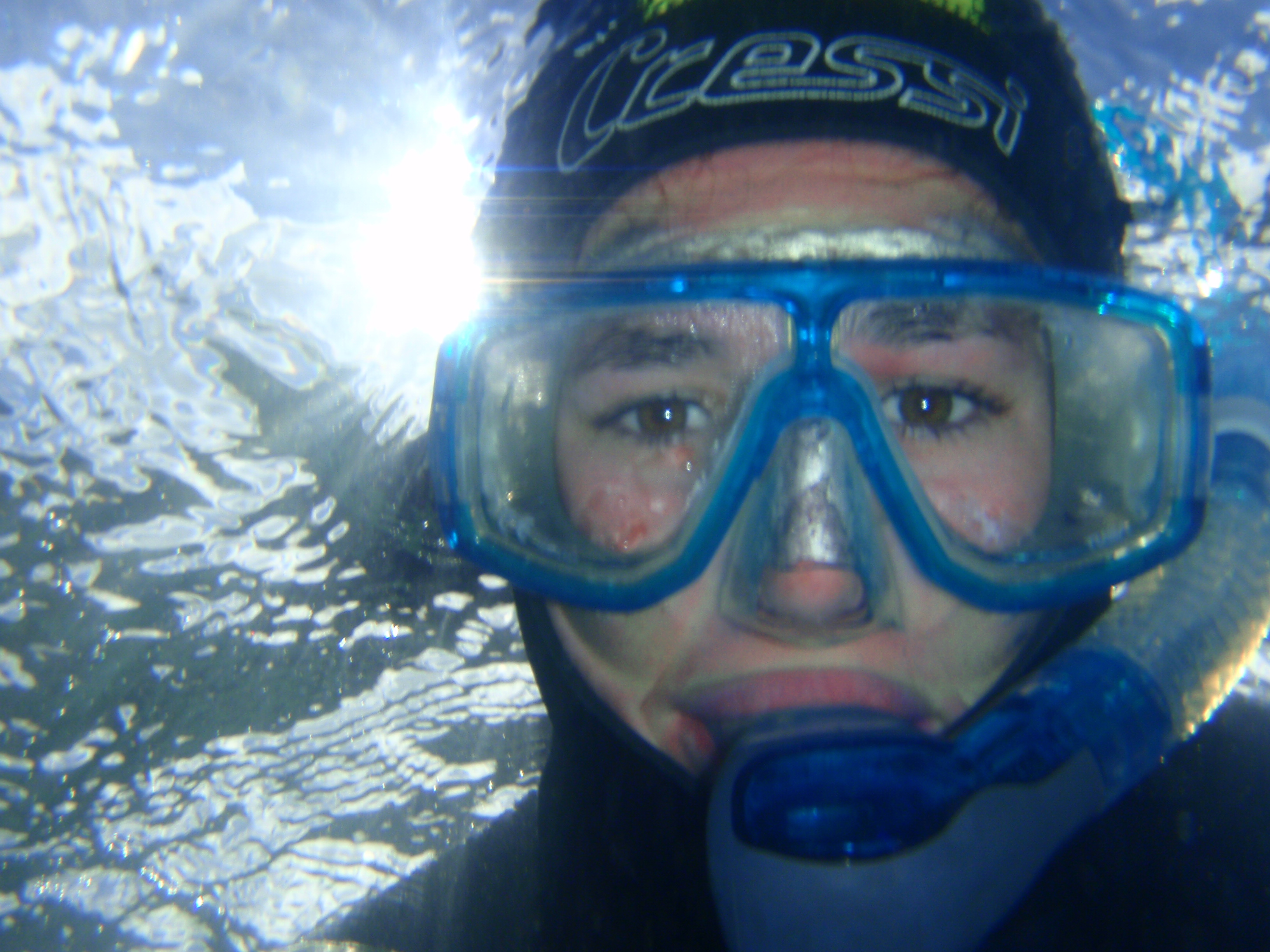
Meet Coral Smith, Marine Education Officer for Devon Wildlife Trust and Scubaverse.com’s newest blogger
Hello Scubaverse and fellow dive enthusiasts and thank you for inviting me to contribute to your blog! So, I’ve been asked to write a regular blog about the work I do to promote marine awareness and conservation in the UK, but before we get onto that I thought I’d give you a bit of background about myself and how I got started.
Growing up in landlocked Hertfordshire (not too far from Scubaverse HQ), it wasn’t until a summer holiday to Lyme Regis in Dorset, when I was about 4 or 5, that I got my first taste of the sea and marine life, rockpooling with my dad in tide-pools that seemed to go on forever. I like to think that’s where my interest in marine life started…
Moving on to when I was nine years old, our family moved to the Caribbean and I was lucky enough to have an amazing underwater world right on my doorstep. The sea then became a part of my life, as I’m sure it does for lots of people living on a small, beautiful island. Every weekend I was snorkelling on warm tropical coral reefs and Parrot fish soon became my favourite, as was watching the magical flying fish skim out of the water as the sun set on another day in paradise. But it was my first time swimming with green turtles that really did it for me and I just fell in love with the ocean and everything that lived there.
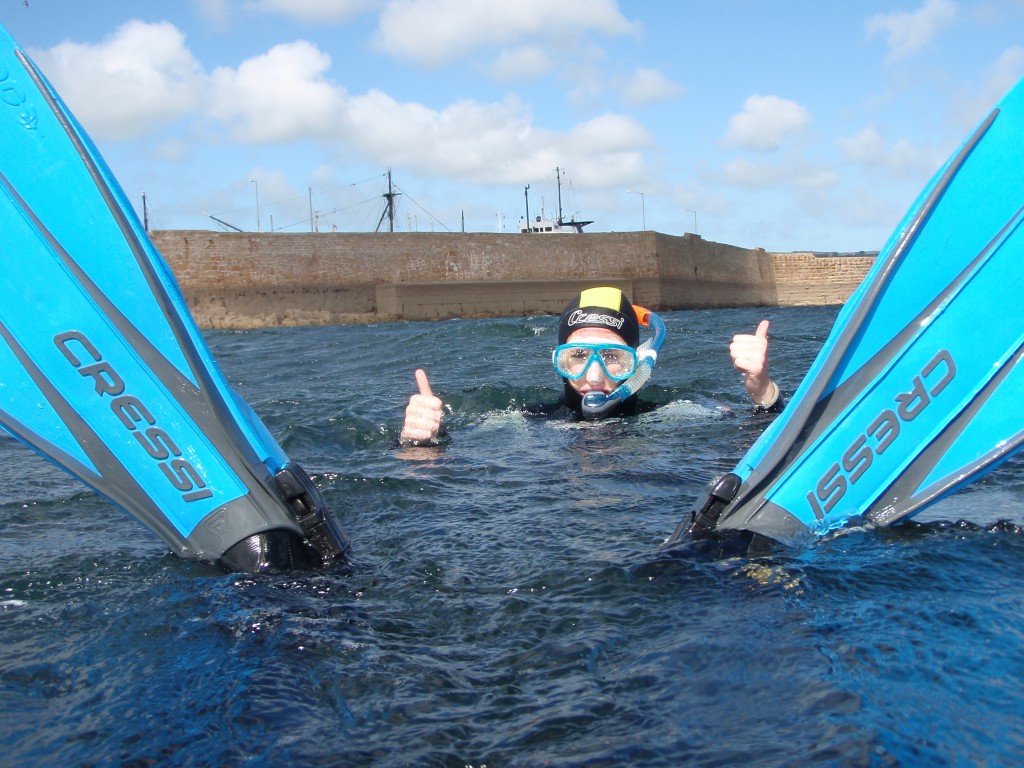
Coral taking part in a PADI Project Aware course whilst volunteering at Wembury Marine Centre. Copyright: Devon Wildlife Trust
Four years in the Caribbean and then it was time to move back to Hertfordshire. After finishing school, I headed to Plymouth University to undertake a degree in Marine Biology and Oceanography. Here I learned that Marine Biology wasn’t all about swimming with turtles and dolphins in nice warm tropical water and that I’d probably never get a job in this field, but I managed to come away with a first class honours degree and went on to do a Masters in Biological Diversity. My lecturer was right about the job thing though, as I came out of uni and didn’t immediately land the job of my dreams, or any job even close… I guess I hadn’t really thought that far ahead! So I spent a couple of years doing various voluntary placements before finally landing a part time role in the education team at the Marine Biological Association of the UK, based in Plymouth. I spent three years working in a lovely team there, before moving on to my current role as Marine Education Officer for Devon Wildlife Trust, based at Wembury Marine Centre.
Wembury was my first full time voluntary placement back in 2009, and like so many other people now working in environmental education and outreach in the South West and beyond, it all started here. Wembury is a magical place, felt by both the locals and the tens of thousands of visitors who flock here each year. It’s not the best looking beach by any means – it’s pretty small, lots of the sand comes and goes, but the rocky shore and view of the Mewstone (a small island just over a kilometre out) is simply stunning. It must be up there as one of the most photographed and painted spots around and is a favoured filming location for numerous BBC Natural History programmes.
Historically, Wembury holds one of the richest biodiversity hotspots for intertidal marine life in the UK, and in recognition of this Wembury Bay was set up as a Voluntary Marine Conservation Area (VMCA) in 1981 and now also forms part of the Plymouth Sound and Estuaries Special Area of Conservation (SAC).
Wembury Marine Centre opened in 1994 and was the inspiration of marine biologist, the late Dr Norman Holme. Today, the Centre is managed by Devon Wildlife Trust (DWT) on behalf of a partnership including the National Trust, South Hams District Council, Devon County Council and Plymouth University Marine Institute.
My colleague Cat and I manage the Centre, both working for DWT, and each year we are supported by a small team of trainees and interns thanks to our partnership with the Marine Institute and other placement schemes. The purpose of our outreach work here is to promote Wembury as a Marine Conservation Area and to create a sense of marine stewardship among the local community and visitors alike. Our work also extends beyond Wembury, promoting The Wildlife Trusts’ vision of ‘Living Seas,’ where the marine environment is managed sustainably for the benefit of all its inhabitants and where people are inspired by marine wildlife and value the sea for the many ways in which it supports our quality of life.
Over the next few months you will hear more about the marine conservation work we do and some of the more interesting and bizarre stories from our little Bay in South Devon.
For more info visit:
Marine Life & Conservation Blogs
Creature Feature: Undulate Ray
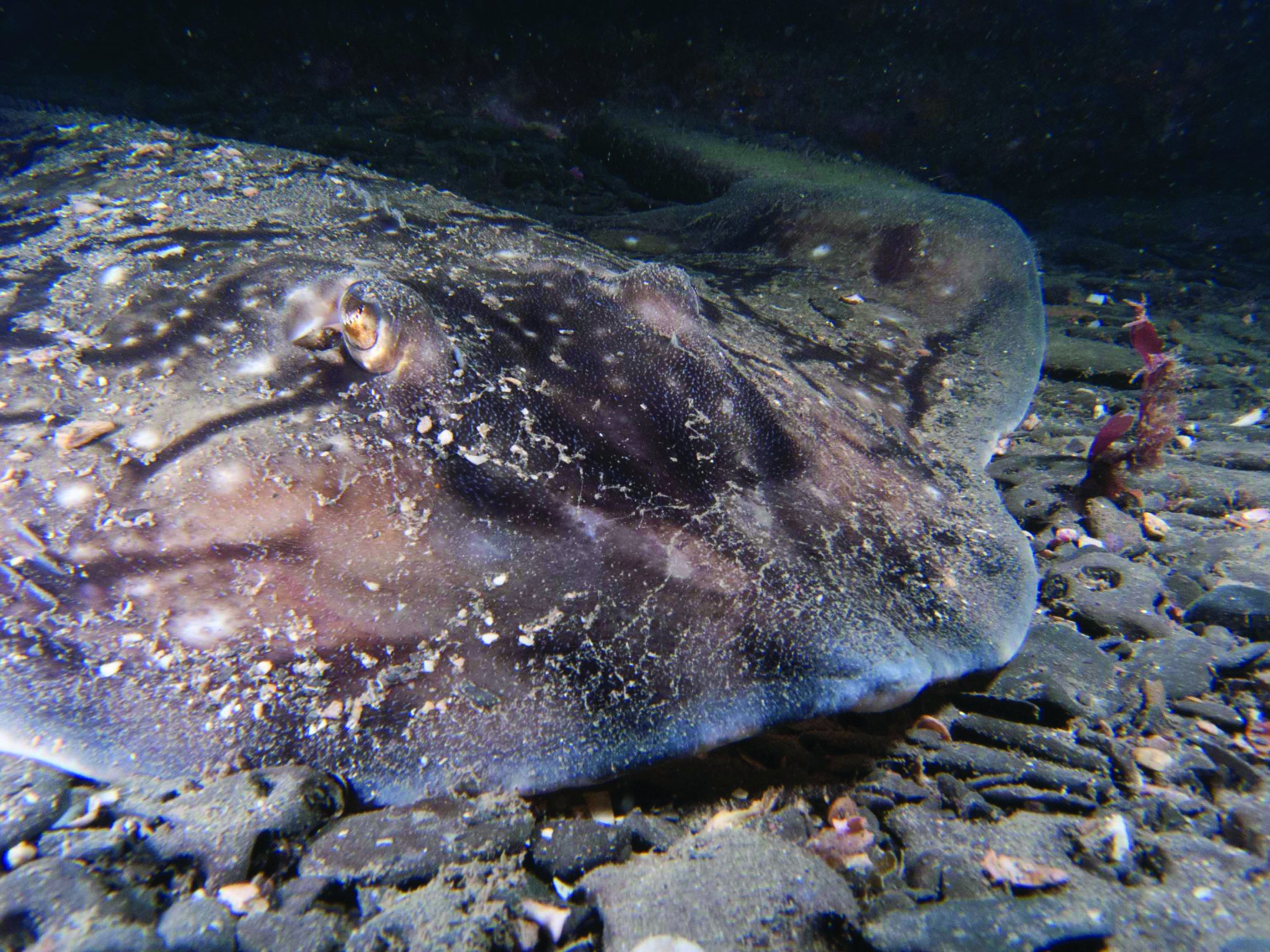
 In this series, the Shark Trust will be sharing amazing facts about different species of sharks and what you can do to help protect them.
In this series, the Shark Trust will be sharing amazing facts about different species of sharks and what you can do to help protect them.
This month we’re looking at the Undulate Ray. Easily identified by its beautiful, ornate pattern, the Undulate Ray gets its name from the undulating patterns of lines and spots on its dorsal side.
This skate is usually found on sandy or muddy sea floors, down to about 200 m deep, although it is more commonly found shallower. They can grow up to 90 cm total length. Depending on the size of the individual, their diet can range from shrimps to crabs.
Although sometimes called the Undulate Ray, this is actually a species of skate, meaning that, as all true skates do, they lay eggs. The eggs are contained in keratin eggcases – the same material that our hair and nails are made up of! These eggcases are also commonly called mermaid’s purses and can be found washed up on beaches all around the UK. If you find one, be sure to take a picture and upload your find to the Great Eggcase Hunt – the Shark Trust’s flagship citizen science project.
It is worth noting that on the south coasts, these eggcases can be confused with those of the Spotted Ray, especially as they look very similar and the ranges overlap, so we sometimes informally refer to them as ‘Spundulates’.
Scientific Name: Raja undulata
Family: Rajidae
Maximum Size: 90cm (total length)
Diet: shrimps and crabs
Distribution: found around the eastern Atlantic and in the Mediterranean Sea.
Habitat: shelf waters down to 200m deep.
Conservation Status : As a commercially exploited species, the Undulate Ray is a recovering species in some areas. The good thing is that they have some of the most comprehensive management measures of almost any elasmobranch species, with both minimum and maximum landing sizes as well as a closed season. Additionally, targeting is entirely prohibited in some areas. They are also often caught as bycatch in various fisheries – in some areas they can be landed whilst in others they must be discarded.
IUCN Red List Status: Endangered
For more great shark information and conservation visit the Shark Trust Website
Image Credits: Banner – Sheila Openshaw; Illustration – Marc Dando
Blogs
Guarding Against Coral Invaders
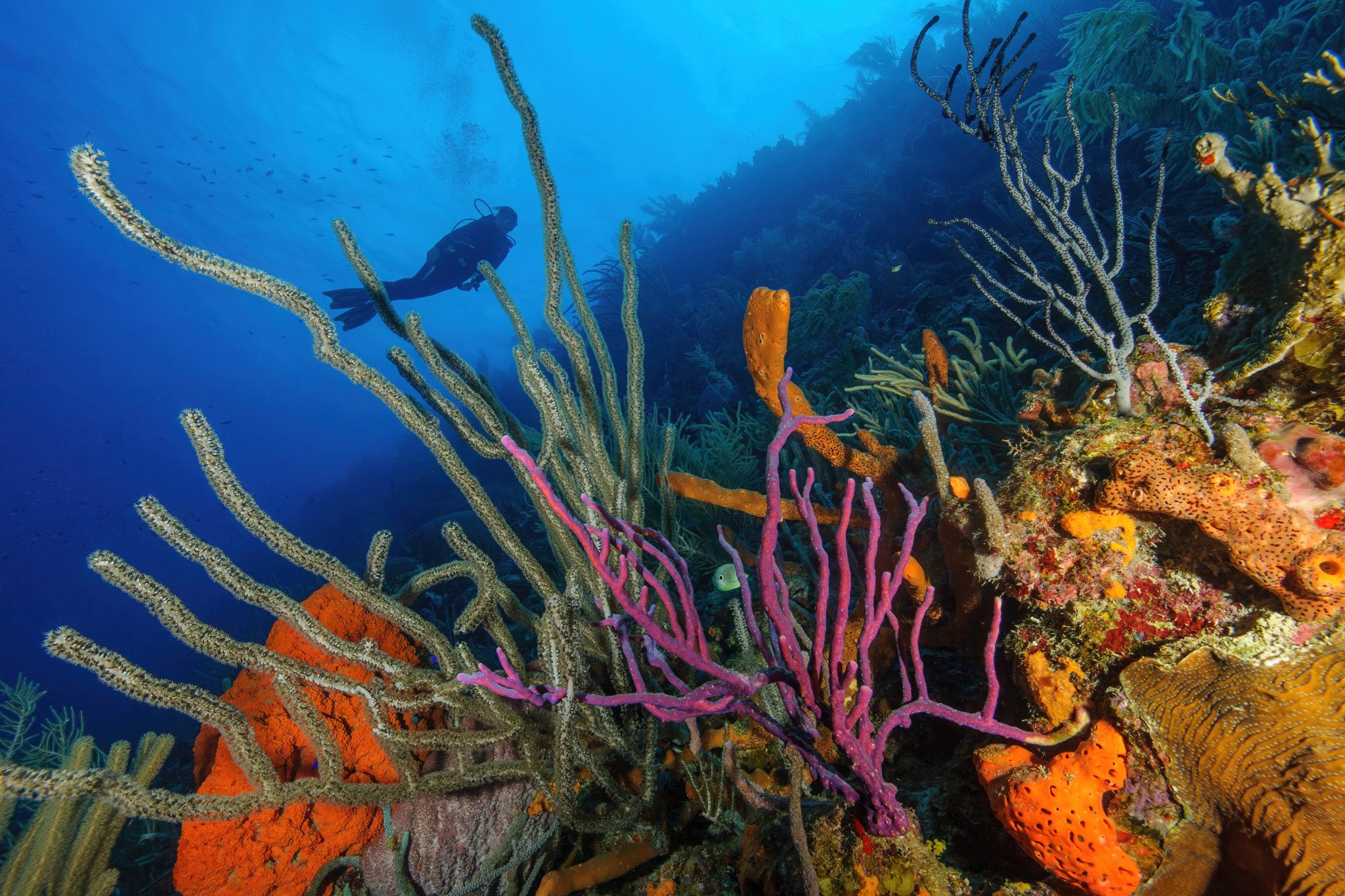
Protecting (Dutch) Caribbean Reefs from Unomia stolonifera
Recent reports highlight the concerning spread of the invasive soft coral, Unomia stolonifera, currently devastating Venezuela’s marine ecosystems and detected in Cuba. With the potential threat of its expansion to the (Dutch) Caribbean islands, urgent action and awareness are essential to safeguard marine biodiversity and local economies from possible catastrophic consequences.
Invasive species are animals or plants from another region of the world that don’t belong in their new environment. These species can have major ecological effects by decimating native flora or fauna. They can also cause large economic losses and impact human health. Invasive species also pose a significant threat to marine ecosystems worldwide, including the Dutch Caribbean. Among these invaders is the octocoral species Unomia stolonifera or “Pulsing Xenia”, originally from the Indo-Pacific. With its rapid growth and lack of natural predators, this species can outcompete native species and disrupt fragile marine habitats such as seagrass beds and coral reefs.
Background
The invasive soft coral U. stolonifera was first identified in 2014, off the coast of Venezuela. It is believed to have been introduced via the illegal aquarium trade. Since this species can reproduce sexually and asexually (or fragment), even small pieces can regenerate to spread. Once introduced it quickly took over shallow reefs and hard substrate at depths of 0-50 meters, outcompeting local corals and seagrass for space. Follow on surveys found that this coral species exhibited average percentage cover as high as 80%, vastly outcompeting native corals. In highly colonized areas, fish are disappearing due to loss of habitats.
In 2022, during a survey conducted in Cuba by the University of Havana, an unknown octocoral was discovered which was later identified as the invasive Unomia stolonifera. It is suspected that the coral larvae arrived in ballast water from fossil fuel ships originating from Venezuela, as nearby sites adjacent to Venezuelan ports have been heavily affected by the invasion.
How to help
Prevention through continuous monitoring, particularly in high-risk areas such as marine harbors and oil facilities, is paramount. Early detection plays a pivotal role in mitigating the threat posed by Unomia stolonifera.
The public’s involvement and awareness are also vital. Local communities, recreational divers, tourists, and all stakeholders are urged to participate in early detection efforts by reporting sightings (photo, location and date) of this invasive coral to their respective Protected Area Management Organization (PMO’s)- the Fundacion Parke Nacional Aruba (FPNA), STINAPA Bonaire, CARMABI Curaçao , Saba Conservation Foundation (SCF), Nature Foundation St. Maarten (NFSXM) and St. Eustatius National Parks (STENAPA). If an invaded area is confirmed, follow the recommendations by the local PMO’s.
Keys to Success
Despite the challenges, early detection is key to mitigating the threat posed by Unomia stolonifera. With continued vigilance, research, and community engagement, there is hope for containing this potential issue before it becomes a major threat.
About the DCNA
The Dutch Caribbean Nature Alliance (DCNA) supports (science) communication and outreach in the Dutch Caribbean region by making nature related (scientific) information more widely available through amongst others the Dutch Caribbean Biodiversity Database, DCNA’s news platform BioNews and through the press. This article contains the results from several scientific studies but the studies themselves are not DCNA studies. No rights can be derived from the content. DCNA is not liable for the content and the in(direct) impacts resulting from publishing this article.
-

 News3 months ago
News3 months agoHone your underwater photography skills with Alphamarine Photography at Red Sea Diving Safari in March
-

 News2 months ago
News2 months agoCapturing Critters in Lembeh Underwater Photography Workshop 2024: Event Roundup
-

 Marine Life & Conservation Blogs2 months ago
Marine Life & Conservation Blogs2 months agoCreature Feature: Swell Sharks
-

 Blogs2 months ago
Blogs2 months agoMurex Resorts: Passport to Paradise!
-

 Blogs2 months ago
Blogs2 months agoDiver Discovering Whale Skeletons Beneath Ice Judged World’s Best Underwater Photograph
-

 Gear News3 months ago
Gear News3 months agoBare X-Mission Drysuit: Ideal for Both Technical and Recreational Divers
-

 Gear Reviews2 months ago
Gear Reviews2 months agoGear Review: Oceanic+ Dive Housing for iPhone
-

 Marine Life & Conservation2 months ago
Marine Life & Conservation2 months agoSave the Manatee Club launches brand new webcams at Silver Springs State Park, Florida


